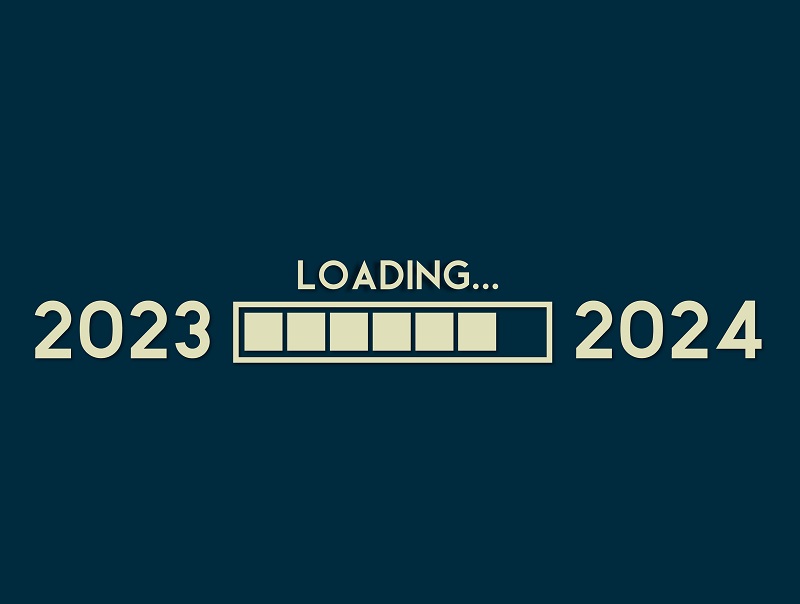The spectacle of U.S. politicians pushing the country to the brink of default is likely to have lingering effects on global financial markets and hence on development, the eleventh-hour compromise notwithstanding. In the near-term, however, the main issue is the U.S. economic slump and the increased likelihood that the world’s biggest economy will fall back into recession.That’s the big take-away from my interview last night with CGD senior fellow Liliana Rojas-Suarez. I rang Liliana soon after the House voted Monday evening to approve the debt-ceiling increase. With Senate approval expected Tuesday, and the markets already having responded to the news of the compromise, it seemed a good time to take stock. I asked Liliana four questions:Q: What impact will the fight over the debt ceiling and the last-minute agreement have on global financial markets? Rojas-Suarez: The problem of the debt ceiling was a fabricated issue. We have never seen a case in history where a market-based country actually defaulted without being forced by the fundamentals. The U.S. case is unique in that respect: the politicians were de facto deciding whether a default should take place.The markets had been declining, but you didn’t see a crash because the markets did not believe there would be a default. So when the deal was announced the markets recovered just a little then immediately slumped because attention returned to the fundamentals, which is the lack of growth in the United States.Q: How will this affect developing countries?Rojas-Suarez: Had there really been a U.S. default, we would have seen a jump in interest rates around the world, as the investors' overall perception of risk would have increased significantly. Now we can expect that U.S. interest rates will remain extremely low, at least through the fall. Stalled U.S. growth and historically low interest rates will affect developing countries in two ways.First, countries that are heavily dependent on the U.S. economy—I’m thinking here of Mexico and Central America in particular—will be hit hard by the drop in U.S. demand for their exports.Second, emerging market economies—Brazil, other strong performers in Latin America, much of Southeast Asia, and even the better performers in sub-Saharan Africa—will continue to experience a flood of capital seeking higher returns, hot money with all the attendant risks of a bubble.China will be less affected from these impacts because its economy is so big, its export markets are highly diversified, and because it has immense pent-up domestic demand. At the same time, China has significant restrictions on the free mobility of capital flows, so it is less affected by the problem of hot money.Q: U.S. Treasury Bills have long been regarded as the investment with the lowest risk, the benchmark against which the interest rates on other debt instruments have been set. Do you see this changing in the months and years ahead?Rojas-Suarez: I am afraid the answer must be yes. Damage has already been done to the credibility of the United States’ most important instrument—Treasury Bills. The rating agencies are looking around and saying the U.S. economy is not recovering and the government is deadlocked. People are asking: what the hell are you going to do to solve the big problem, the lack of growth? I think that there’s at least a 30 to 40 percent likelihood of a downgrade in U.S. credit.Q: Beyond finance, do you think that there are broader implications for perceptions of the United States in the developing world? Does the standoff undermine the ability of the United States to exercise leadership?Rojas-Suarez: Absolutely. There is no question that more and more people are questioning whether the U.S. can continue having supremacy in the world. Developing countries are getting frustrated. They say: we had these problems before and made a lot of mistakes and learned our lessons. We never thought that the United States could fall into the same kind of mess. People are saying: “So, you too are vulnerable. You are not so strong as we thought you were.” Regaining international credibility and leadership is perhaps the most serious challenge that the United States faces. And this is an extremely difficult task. Those of us who study crises around the world know very well that it takes a generation to win credibility and a minute to lose it.
Rojas-Suarez: The problem of the debt ceiling was a fabricated issue. We have never seen a case in history where a market-based country actually defaulted without being forced by the fundamentals. The U.S. case is unique in that respect: the politicians were de facto deciding whether a default should take place.The markets had been declining, but you didn’t see a crash because the markets did not believe there would be a default. So when the deal was announced the markets recovered just a little then immediately slumped because attention returned to the fundamentals, which is the lack of growth in the United States.Q: How will this affect developing countries?Rojas-Suarez: Had there really been a U.S. default, we would have seen a jump in interest rates around the world, as the investors' overall perception of risk would have increased significantly. Now we can expect that U.S. interest rates will remain extremely low, at least through the fall. Stalled U.S. growth and historically low interest rates will affect developing countries in two ways.First, countries that are heavily dependent on the U.S. economy—I’m thinking here of Mexico and Central America in particular—will be hit hard by the drop in U.S. demand for their exports.Second, emerging market economies—Brazil, other strong performers in Latin America, much of Southeast Asia, and even the better performers in sub-Saharan Africa—will continue to experience a flood of capital seeking higher returns, hot money with all the attendant risks of a bubble.China will be less affected from these impacts because its economy is so big, its export markets are highly diversified, and because it has immense pent-up domestic demand. At the same time, China has significant restrictions on the free mobility of capital flows, so it is less affected by the problem of hot money.Q: U.S. Treasury Bills have long been regarded as the investment with the lowest risk, the benchmark against which the interest rates on other debt instruments have been set. Do you see this changing in the months and years ahead?Rojas-Suarez: I am afraid the answer must be yes. Damage has already been done to the credibility of the United States’ most important instrument—Treasury Bills. The rating agencies are looking around and saying the U.S. economy is not recovering and the government is deadlocked. People are asking: what the hell are you going to do to solve the big problem, the lack of growth? I think that there’s at least a 30 to 40 percent likelihood of a downgrade in U.S. credit.Q: Beyond finance, do you think that there are broader implications for perceptions of the United States in the developing world? Does the standoff undermine the ability of the United States to exercise leadership?Rojas-Suarez: Absolutely. There is no question that more and more people are questioning whether the U.S. can continue having supremacy in the world. Developing countries are getting frustrated. They say: we had these problems before and made a lot of mistakes and learned our lessons. We never thought that the United States could fall into the same kind of mess. People are saying: “So, you too are vulnerable. You are not so strong as we thought you were.” Regaining international credibility and leadership is perhaps the most serious challenge that the United States faces. And this is an extremely difficult task. Those of us who study crises around the world know very well that it takes a generation to win credibility and a minute to lose it.
CGD blog posts reflect the views of the authors, drawing on prior research and experience in their areas of expertise.
CGD is a nonpartisan, independent organization and does not take institutional positions.


 Rojas-Suarez: The problem of the debt ceiling was a fabricated issue. We have never seen a case in history where a market-based country actually defaulted without being forced by the fundamentals. The U.S. case is unique in that respect: the politicians were de facto deciding whether a default should take place.The markets had been declining, but you didn’t see a crash because the markets did not believe there would be a default. So when the deal was announced the markets recovered just a little then immediately slumped because attention returned to the fundamentals, which is the lack of growth in the United States.Q: How will this affect developing countries?Rojas-Suarez: Had there really been a U.S. default, we would have seen a jump in interest rates around the world, as the investors' overall perception of risk would have increased significantly. Now we can expect that U.S. interest rates will remain extremely low, at least through the fall. Stalled U.S. growth and historically low interest rates will affect developing countries in two ways.First, countries that are heavily dependent on the U.S. economy—I’m thinking here of Mexico and Central America in particular—will be hit hard by the drop in U.S. demand for their exports.Second, emerging market economies—Brazil, other strong performers in Latin America, much of Southeast Asia, and even the better performers in sub-Saharan Africa—will continue to experience a flood of capital seeking higher returns, hot money with all the attendant risks of a bubble.China will be less affected from these impacts because its economy is so big, its export markets are highly diversified, and because it has immense pent-up domestic demand. At the same time, China has significant restrictions on the free mobility of capital flows, so it is less affected by the problem of hot money.Q: U.S. Treasury Bills have long been regarded as the investment with the lowest risk, the benchmark against which the interest rates on other debt instruments have been set. Do you see this changing in the months and years ahead?Rojas-Suarez: I am afraid the answer must be yes. Damage has already been done to the credibility of the United States’ most important instrument—Treasury Bills. The rating agencies are looking around and saying the U.S. economy is not recovering and the government is deadlocked. People are asking: what the hell are you going to do to solve the big problem, the lack of growth? I think that there’s at least a 30 to 40 percent likelihood of a downgrade in U.S. credit.Q: Beyond finance, do you think that there are broader implications for perceptions of the United States in the developing world? Does the standoff undermine the ability of the United States to exercise leadership?Rojas-Suarez: Absolutely. There is no question that more and more people are questioning whether the U.S. can continue having supremacy in the world. Developing countries are getting frustrated. They say: we had these problems before and made a lot of mistakes and learned our lessons. We never thought that the United States could fall into the same kind of mess. People are saying: “So, you too are vulnerable. You are not so strong as we thought you were.” Regaining international credibility and leadership is perhaps the most serious challenge that the United States faces. And this is an extremely difficult task. Those of us who study crises around the world know very well that it takes a generation to win credibility and a minute to lose it.
Rojas-Suarez: The problem of the debt ceiling was a fabricated issue. We have never seen a case in history where a market-based country actually defaulted without being forced by the fundamentals. The U.S. case is unique in that respect: the politicians were de facto deciding whether a default should take place.The markets had been declining, but you didn’t see a crash because the markets did not believe there would be a default. So when the deal was announced the markets recovered just a little then immediately slumped because attention returned to the fundamentals, which is the lack of growth in the United States.Q: How will this affect developing countries?Rojas-Suarez: Had there really been a U.S. default, we would have seen a jump in interest rates around the world, as the investors' overall perception of risk would have increased significantly. Now we can expect that U.S. interest rates will remain extremely low, at least through the fall. Stalled U.S. growth and historically low interest rates will affect developing countries in two ways.First, countries that are heavily dependent on the U.S. economy—I’m thinking here of Mexico and Central America in particular—will be hit hard by the drop in U.S. demand for their exports.Second, emerging market economies—Brazil, other strong performers in Latin America, much of Southeast Asia, and even the better performers in sub-Saharan Africa—will continue to experience a flood of capital seeking higher returns, hot money with all the attendant risks of a bubble.China will be less affected from these impacts because its economy is so big, its export markets are highly diversified, and because it has immense pent-up domestic demand. At the same time, China has significant restrictions on the free mobility of capital flows, so it is less affected by the problem of hot money.Q: U.S. Treasury Bills have long been regarded as the investment with the lowest risk, the benchmark against which the interest rates on other debt instruments have been set. Do you see this changing in the months and years ahead?Rojas-Suarez: I am afraid the answer must be yes. Damage has already been done to the credibility of the United States’ most important instrument—Treasury Bills. The rating agencies are looking around and saying the U.S. economy is not recovering and the government is deadlocked. People are asking: what the hell are you going to do to solve the big problem, the lack of growth? I think that there’s at least a 30 to 40 percent likelihood of a downgrade in U.S. credit.Q: Beyond finance, do you think that there are broader implications for perceptions of the United States in the developing world? Does the standoff undermine the ability of the United States to exercise leadership?Rojas-Suarez: Absolutely. There is no question that more and more people are questioning whether the U.S. can continue having supremacy in the world. Developing countries are getting frustrated. They say: we had these problems before and made a lot of mistakes and learned our lessons. We never thought that the United States could fall into the same kind of mess. People are saying: “So, you too are vulnerable. You are not so strong as we thought you were.” Regaining international credibility and leadership is perhaps the most serious challenge that the United States faces. And this is an extremely difficult task. Those of us who study crises around the world know very well that it takes a generation to win credibility and a minute to lose it.

